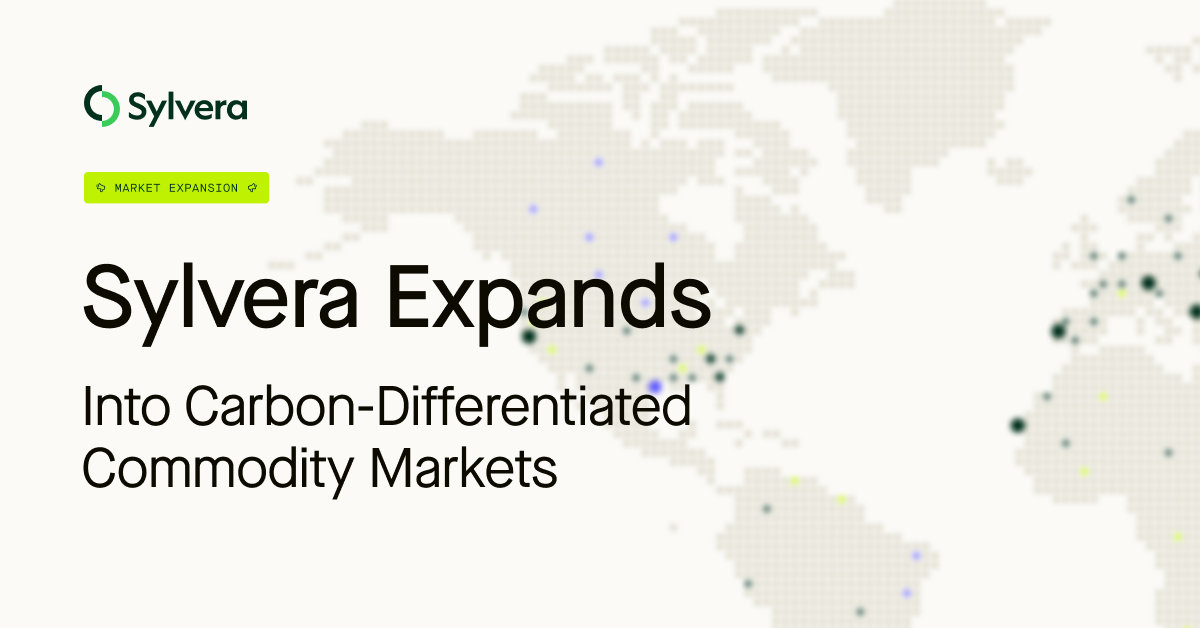「私たちは長年にわたり、信頼できる格付けの提供に注力し、現地データチームへの投資を重ねてきました。これにより当社の格付けの正確性は確保されていますが、購入者が検討している数千のプロジェクトにわたるスケールを実現することはできません。」
カーボンクレジット調達の最新動向について詳しくは、当社の記事「Key Takeaways for 2025」をご覧ください。調達戦略を改善するための、データに基づく5つのヒントをご紹介しています。

加えて:Connect to Supplyをご利用のお客様は、Sylveraのその他のツールもご利用いただけます。プロジェクトの格付け確認や強みの評価、高品質なカーボンクレジットの調達に加え、プロジェクトの進捗状況のモニタリング(特に発行前段階で投資している場合)も可能です。
Sylveraの無料デモを予約して、調達機能やレポーティング機能を体験しましょう。
パリ協定第6条を通じた炭素取引は、各国が気候変動に関するコミットメントを達成するための革新的な方法を模索する中で注目を集めています。ITMO(International Transferred Mitigation Outcomes:国際的に移転された緩和成果)と呼ばれるこれらのクレジットの取引を通じて、各国は排出削減のために協力し、世界的な気候変動目標に貢献する費用対効果の高い成果を達成することができます。しかし、他の炭素市場と同様、ITMOの質にはばらつきがあるため、強固な格付けシステムが必要とされています。Sylvera世界初の第6条格付けの導入は、政府間炭素取引における説明責任と透明性の要求という、重要な市場ダイナミクスを浮き彫りにしています。
第6条における品質保証の必要性の高まり
炭素クレジットは、要するに排出削減の約束ですが、この約束の履行は、特定のプロジェクトの詳細に大きく依存します。第6条市場では、同じ方法論に従った2つのプロジェクトが、地域の実施要因や運用上の仮定によって、異なる環境結果をもたらす可能性があります。この一貫性のなさが、取引されるクレジットが実際の検証可能な削減を表すことを保証する上での課題を生み出します。
格付けは、関係者(バイヤー、投資家、規制当局)に対し、一貫性のある第三者によるカーボンクレジット 品質評価を提供することで、市場のダイナミクスに大きな影響を与えることができます。この一貫性は、市場が成熟し、高インテグリティ・クレジットへの需要が高まる中で重要な鍵となります。第6 条市場における格付けの役割は、以下のような力学によって形成されています:
透明性と信頼構築国境を越えたクレジット取引が一般化する中、透明性の高い品質評価は信頼構築に不可欠です。買い手は、インパクトの大きいプロジェクトに投資しているという保証を求め、格付けは、プロジェクトの排出削減ポテンシャルを評価するための標準化されたレンズを提供します。この透明性は、国際協力が一貫した基準によって左右される第6条のような市場では特に不可欠です。
リスクの軽減とインセンティブの調整 質の高い格付けは、プロジェクトが気候変動による成果を達成し、維持する可能性を評価することにより、リスクを軽減します。例えば、Sylveraガーナの調理用ストーブ第6条プロジェクトの格付けでは、削減量の見積もりにおいて、その保守的な仮定が強調されている一方で、不確実性が残る領域が指摘されています。このような長所と限界にフラグを立てることで、格付けは、明確で測定可能なインパクトを持つプロジェクトに投資を誘導する一方で、リスクの高いプロファイルを持つプロジェクトから買い手を遠ざけることで、インセンティブを調整します。
多様性の中での標準化第6条では、森林再生への取り組みからエネルギー効率化への取り組みまで、地域を超えた多様なプロジェクトのタイプを認めています。格付けは、このような幅広いプロジェクトを評価するための共通の枠組みを提供し、セクターを超えた比較や決定を容易にします。長期的には、このような標準化は、より高い参加を促し、コンプライアンスとボランタリーバイヤーの双方に明確性を与えることができるため、極めて重要です。
グリーンウォッシングの防止: 企業や政府がますます野心的な気候変動目標の達成を目指す中、グリーンウォッシングのリスクが高まっています。格付けは、プロジェクトが本当に排出削減や除去に貢献しているかどうかを厳しく評価することで、セーフガードを提供します。第6条市場においては、政府にとっても企業にとっても風評リスクや規制の監視が厳しいため、グリーンウォッシングの回避は特に重要です。
第6条の形成における早期参入者と先駆者の役割
スイスとシンガポールは買い手側として第6条市場に早くから参入しており、ガーナとタイは供給側として早くから参入しています。彼らは共に、透明性が高く説明責任のあるITMO取引のモデルの確立に貢献しています。スイスがタイなどの国々と最近行ったITMO取引や、ガーナが発表した第6条の枠組みは、明確なガイドラインと品質保証の重要性を示しています。これらの初期の取り組みは、第6条の可能性と、将来の取引のための高い基準を設定する格付けの役割の両方を強調する、ケーススタディとしての役割を果たしています。
透明性をもって主導することにより、これらの先駆的な国々は、第6条の取り組みの先駆者であるだけでなく、質に対する期待も示しています。より多くの国々が第6条メカニズムを採用するにつれ、その焦点は、品質が妥協されることなく維持されることを保証しつつ、規模を拡大することに移っていくでしょう。
第6条市場の展望:ボランタリーカーボン市場との融合
第6条の空間における注目すべき動きは、自主的炭素市場(VCM)との交差です。どちらの市場も、品質保証、透明性、環境保全の必要性に支えられています。それらが成熟するにつれて、コンプライアンス主導型(第6条)と自主的な取り組みとの間の収束は、特に自主的な市場が厳格なプロジェクト基準のモデルとして第6条に注目するにつれ、ますます起こりやすくなっています。
第6条市場の可能性は大きい。メリーランド大学とIETAの予測によると、第6条は2030年までに年間1,000億ドル以上の取引を促進する可能性があります。この可能性を実現するためには、買い手も売り手も同様に、彼らが取引するクレジットの完全性に自信を持つ必要があります。Sylvera提供するような格付けは、この市場の成長が信頼性に裏打ちされたものであることを保証し、ネット・ゼロへの公平な世界的移行を促進する上で中心的な役割を果たすでしょう。
結論
各国が気候変動目標を達成するための柔軟で費用対効果の高い方法を模索する中、第6条クレジットの需要は増加の一途をたどっています。しかし、第6条の成功は、高い基準を維持し、非効率やグリーンウォッシングを防ぐ能力にかかっています。独立した格付けは、実際に測定可能な気候変動対策にインセンティブを与える市場を構築するために必要な説明責任と透明性を提供します。
第6条市場が発展するにつれて、格付けの役割はますます顕著になり、パリ協定の目標に沿った、拡張可能で信頼できる炭素市場の基盤が提供されるでしょう。



.jpg)







